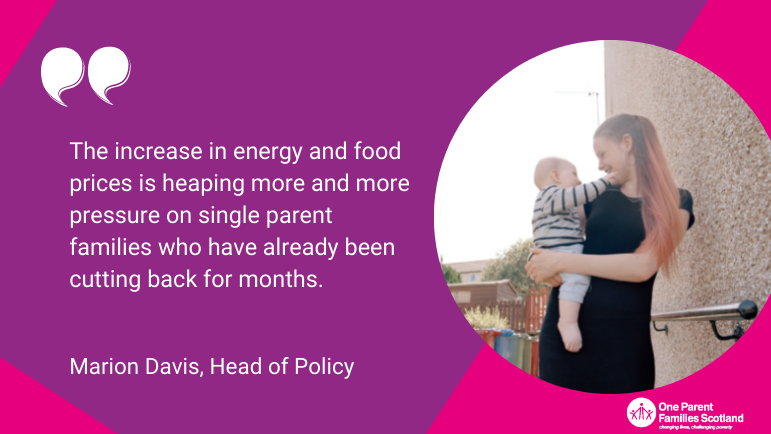The Queen’s speech fails to address the rising tide of child poverty

10/05/2022
News
Statement from OPFS
Responding to today’s Queen’s Speech, Marion Davis, Head of Policy at One Parent Families Scotland said:
“More than one in four of Scotland’s children are officially recognised as living in poverty. The UK Government has announced little to address this in the Queen’s Speech.
“The lack of policies to tackle rising child poverty is the key disappointment of this legislative programme. Child poverty has a massive impact on children’s lives and leads to worse outcomes throughout life.
“The results of our recent survey of single parents exposed the brutal reality of the impact of the cost-of-living crisis on single parents and their children. The increase in energy and food prices is heaping more and more pressure on single parent families who have already been cutting back for months.
“Our consultations show that single parents are already feeling the impact of rising energy and food costs on their finances. Many have seen a detrimental impact on their family wellbeing, with parents telling us they are feeling anxious, stressed, or struggling with their mental health as a result. And our helpline and website have been inundated by single parents facing impossible choices, with nowhere else to turn.
“Government proposals do not go far enough for the thousands of single parent families in poverty. Targeted support through the benefits system would be a much better way to help those who are choosing between heating and putting food on the table. Universal Credit and other benefits must be uprated by 7% in line with inflation.”